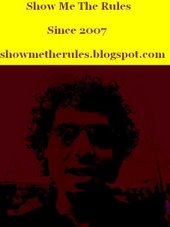Terrorism Conference In Iran
 UPDATE: Check out the new blog covering the Mid East: Outsider On The Inside
UPDATE: Check out the new blog covering the Mid East: Outsider On The InsideA two-day, state-sponsored conference aimed at tackling the roots of terrorism started today in Iran, with "46 scholars from 20 countries, including the Islamic world, Europe and the United States in attendance".
The main aim of the conference is to seek roots of terrorism, neutralizing Western propaganda on exposing Muslims as terrorists and distinguishing legitimate defense by Islamic groups from terror by Islamists.
Also on the agenda is what the conference calls U.S. "efforts to exploit the September 11 incident as pretext for expanding it's hegemonic aims."
The conference secretary, Ayatollah Taskhiri, accused the U.S. of having used terrorism as an excuse to confront "Islamic awakening" and invade Afghanistan and Iraq.
The Ayatollah said resistance by Islamic nations and especially young Muslims would be the best method to confront global prejudice against Muslims as potential terrorists in general and U.S. conspiracies in the Islamic world in particular.
Iranian President Mahmoud Ahmadinejad will attend the conference later Tuesday and hold a speech on terrorism.
The State Department's Country Reports on Terrorism 2006 says Iran is the "most active state sponsor" of terrorism with elements of its government — notably the Revolutionary Guards and intelligence ministry — supporting many extremist groups in Iraq and elsewhere.
The two "were directly involved in the planning and support of terrorist acts and continued to exhort a variety of groups, especially Palestinian groups with leadership cadres in Syria and Lebanese Hezbollah, to use terrorism in pursuit of their goals," the report said.
The Revolutionary Guard has been "linked to armor-piercing explosives that resulted in the deaths of coalition forces" and has helped, along with Lebanon's radical Hezbollah movement, train Iraqi Shiite extremists to build bombs, it said.
At the same time, "Iran maintained a high-profile role in encouraging anti-Israeli activity, rhetorically, operationally and financially," the report said, adding Iran has yet to identify, try or turn over senior Al Qaeda members it detained in 2003.






|